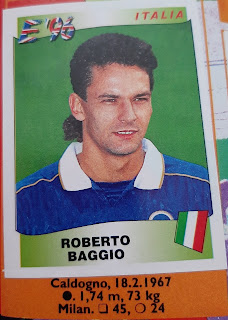24: Raimond Van der Gouw, Manchester United, 1997 Futera Manchester United
Mat Jolin-Beech explores the phenomenon of the substitute keeper with a look at one who was bloody good at his job but not quite as good as Peter Schmeichel and, apparently, Massimo Taibi. That being said today’s subject didn’t suffer the indignity of being mugged off by Matt Le Tissier (unlike Schmeichel and Taibi) or gifting Barnsley their highlight of the 1997/98 season (Schmeichel again) but he did have a pretty good view of all of the above. Over to Mat.
There are many unsung heroes in the world. The front-line workers in recent months immediately spring to mind. The doctors, nurses, anyone in the NHS, refuse collectors, supermarket staff, the emergency services, and anyone who has been performing a vital service in keeping the world going with some semblance of normality.
Whilst not in the realm of importance or significance as those, football has its own gaggle of under appreciated players. Every club will have them, some gaining cult status, some quietly going about their work in the background, and their importance only noted after they have left. It takes a certain type of mentality to relish that role. To appreciate being underappreciated. To make your spotlight the shadows. This mindset is one that successful number two goalkeepers must have.
There is an acceptance that under normal circumstance you will travel and warm up only to sit on the bench. Ending the season with clean gloves and no appearances is a sign things have gone well at your club. This has changed in recent years where cup competitions become arenas for the fringe players to get some minutes, and potentially meet contract requirements. But the essence of being the back-up remains. Your job is to be ready should disaster strike.
For Manchester United, one such guy is the big Dutchman, Raimond van der Gouw. He remains to this day the epitome of a number two keeper. A total of 37 games over six years, and only twice playing enough games to warrant league winners medals in 1999/00 and 2000/01. He missed out on two other medals in United’s successful campaigns due to a lack of playing time. Whenever he came in, he rarely played badly. He even gave Mark Bosnich a run for the number one jersey in 2000/01 before returning to his place on the bench with the arrival of French World Cup winner Fabien Barthez.
His time before moving to Manchester was already a long and pretty successful career. A senior debut in 1985 for Dutch top-tier club Go Ahead Eagles – yes, that is really their name – saw van der Gouw impress. A relegation in 1987 saw him move to Vitesse Arnhem also in the Dutch second tier at this point. A total of 258 appearances later saw van der Gouw’s Vitesse promoted, qualify for Europe, get to a UEFA Cup quarter final, and reach domestic cup finals.
This form, and experience did not go unnoticed. S’Alex needed a new number two when Tony Coton left for Sunderland and Peter Schmeichel remained firmly rooted as the club’s number one. The then 33-year-old moved for £500,000 and engrained himself into the club, far beyond his role on the bench. He was a goalkeeping coach, and trained up the youngsters at The Cliff and then the Trafford Training Centre (now the Aon Training Centre) at Carrington.
His final game came as the era of number 1.5 keepers emerged at United with Roy Carroll and Tim Howard. A final game clean sheet was only fitting, before a horrid 12 months at West Ham United (how many players does that apply to?). He returned to the Netherlands for a few more years, and in his final game scored his only career goal. It was a penalty for AGOVV Apeldoorn. The hero in the shadows finally got his moment in the spotlight.





Comments
Post a Comment